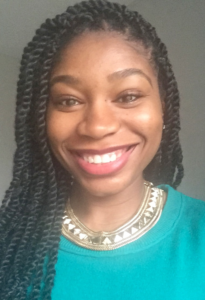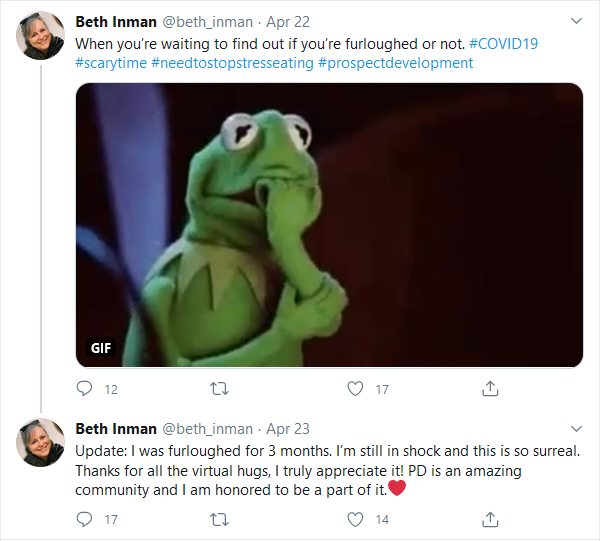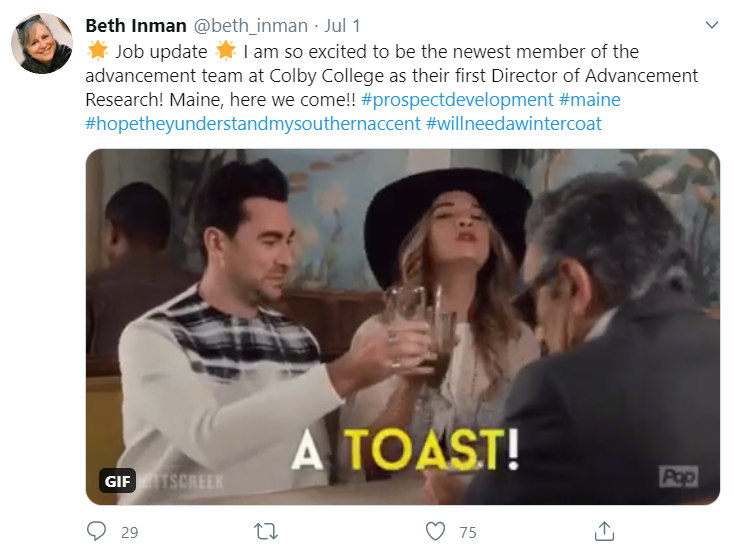This week we are pleased to welcome a guest author on The Intelligent Edge to share her (and others’) perspectives on identity and Blackness in our profession. You may know Joan Ogwumike as the author for the past four years of the blog, A Researcher’s Diary, but she is also the writer of the Apra-Illinois blog as well as Prospect Research Associate at the Obama Foundation. I’m delighted and thankful that Joan said yes to carving out time to share these perspectives and advice with us. ~Helen
Although small in number, Black prospect development professionals deserve an opportunity to share experiences and knowledge pertaining to diversity, inclusion and equity, wealth analysis, and ways this industry could grow.
I interviewed three Black prospect development professionals on their views and experience in our industry. The views they shared are not representative of every Black person’s experience or understanding of this industry, but they are valid and relatable to many. Due to the candidness, vulnerability and bravery to educate us, as readers and learners, those who have shared their reflections and experiences here have chosen to stay fairly anonymous.
It is important to recognize the voices of Black colleagues who have experienced stifling, bias, and distrust of their expertise and voice, just as it is important to recognize the voices of Black colleagues who have been welcomed and respected within their prospect development teams. This platform acknowledges both experiences and their validity.
To uncover the presence of identity and Blackness in Prospect Development, you must begin at the concept of presence. After a conversation with a Black colleague in the field, I was able to learn that there has been growth – over time, people of color were seeing this industry as a career option, and after decades you could spot 2 or 3 in a session at a conference. Is this exponential growth? Is this an ideal answer to presence? I think it’s a start, but it’s time for us to consider presence in our research and prospect pools.
Many prospect development professionals stepped up in 2020 to be better allies, more intentional, and started reading all the books and watching a lot of movies. My question to them is: will there be longevity in these efforts? In the year 2030 will there be a presence of equity and representation on your donor walls and annual reports?
When delving into identity, there is just so far to go. Identity is a multi-faceted and murky concept that is personal, central to lived-experiences, and complex. As prospect development professionals, to then analyze wealth and be the optimal fundraising professional, your identity can either be central to decision-making because you speak from a place of having a healthy relationship with money, or it can be compartmentalized to take the form of what you have learned from others’ experiences with money.
Blackness is a word loaded with more meaning than can ever be expressed in one article – differing in meaning for each Black person with a few commonalities and a particular thread called perseverance. The reality of Blackness is the double-edged sword it’s crafted from – a history and present-day saga full of bias, violence, pain, and discrimination; but with renewing hope, celebrating, redefining odds, attaining wealth and prescribing to freedom. Both extremes of this reality cut deeply into how society works, how we fundraise, and the ways in which we see each other.
The unique glimpses of race and identity within prospect development colleagues requires the experiences and statements below (and I would like to acknowledge the many others whose experience differs from those below that also require your attention). Therefore, as readers and learners, I urge you to please be attentive as you read what your colleagues have shared. And, be patient with yourself as you internalize the purpose, their message, and your understanding of words.
Viewing wealth beyond the historical limits and colorblind perspective.
In my youth, I didn’t think much about race, so my identity as I saw it, was simply tied to my own “nerdy” pursuits. As I matured, I began to understand that race is not biological and that race and identity cannot be separated. Identity is not only how we see ourselves but also how others see us, so the perception of race is pertinent. This was always true whether I understood it or not. Looking back on my early life has been both challenging and illuminating, but it has helped me share experiences that hopefully inform others on how race shapes identity.
My understanding of prospect development has always been shaped by two attributes: wealth (who has it and how much) and affinity (will they donate to our organization). Race seemed less important through that lens, so that was reflected in my work. Now, it’s clear that the old approach and the infrastructure built from a colorblind perspective will only surface the same narrow pools of people. The challenge for us is attempting to view wealth beyond the historical limits we’ve created and to build on the knowledge of those who have provided ongoing scholarship on the subject of race and wealth.
Advice: I understand that, as researchers, we’re always looking to find answers quickly, but in this case, patience and perseverance are required. We simply have to make time for change in our work and in our lives.
-K., Senior Research Associate
The presence of being the “only,” and advocating for “many.”
From undergraduate studies, to graduate school, to joining the workforce – I’ve always been the only. The only Black girl in the class or on the Development team or Board member. At a point I realized and owned my only-ness, as sad as the truth is. But I realized being the only mattered when a Black woman approached me in Los Angeles, several years ago, and told me that the fact that I was teaching the importance of prospect research, as a Black researcher, meant a lot to her. Seeing me, meant a lot to her because there wasn’t a lot of us.
To be honest, I was taken aback by this because I was just doing my job and passion, and obviously compartmentalizing the most crucial layer of my being. Who knew seeing me would mean something? So, I am eternally grateful to her for the reminder and for giving me the pivotal message (and gift) that what I represent matters. My presence in the field not only matters physically but also adds to how I generate prospects who I unequivocally know have potential and capacity beyond their race and external biases. I analyze wealth knowing that it can and is attained by people who look like me, however, we need to strive to do the work and include them. Instead of holding on to Oprah, Michael Jordan, Robert Smith – the only names we seem to know.
We need to create a crowd.
Prospecting Advice: Set a date, set a time, block out a chunk of time in your calendar – whatever you need to do, and prospect based on publicly available lists. This is intentional work.
-J., Prospect Research Associate
Your perceptions on identity and race can come with consequences.
Identity is who I am, which has been shaped by my experiences over time, but is independent of how people perceive me. And I am many things, but my identification as a Black woman – specifically – is more a political affirmation than racial identity. I think identity plays a role in every person’s work, no matter how they identify. Personally, it plays a bigger role when employed at predominantly white institutions (PWIs) and fluctuates according the cultural competency of my colleagues.
I still use the word race a lot because of convention, but I prefer “racial designation” or “racecraft.” The distinction is important because it reminds us that race is an ideology that people subject others to; race can’t cause or explain anything. Practices, policies and laws informed by racial ideology cause and explain conditions and outcomes. In other words, nothing can happen to me because I am Black. But many things can happen to me because people categorize me as Black, and their perceptions of Blackness come with consequences they may or may not be aware of.
Every organization and institution engaged in fundraising is materially influenced by racial ideology in some way. As I spend more of my professional time and energy on diversity, equity, and inclusion work, I have more occasion to give voice to my thoughts and put them into action. Bridging the gaps between prospect research, prospect development, and prospect engagement is of particular interest because fundraising success relies on proficiency in all three.
Encouragement: Everybody should consider race and identity in their daily work, not just when it’s on the agenda for a staff retreat or HR training.
-R., Director of Prospect Research






